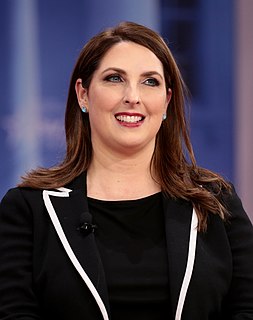A Quote by James Davison Hunter
As with military campaigns, cultural warfare is always decided over the pragmatic problems of strategy, organization and resources. . . . The factions with the best strategies, most efficient organization, and access to resources will plainly have the advantage and very possibly, the ultimate victory.
Related Quotes
A real strategy is a coherent mix of policy and action designed to overcome a significant challenge. So a sensible employee might indeed say that they have no idea what the organization's strategy is - because it seems to have none. Senior managers' so-called "strategies" are heavy with aspirations and goals, but light on how resources and strengths will be combined to achieve them.
The opportunities and threats existing in any situation always exceed the resources needed to exploit the opportunities or avoid the threats. Thus, strategy is essentially a problem of allocating resources. If strategy is to be successful, it must allocate superior resources against a decisive opportunity.
In any bureaucratic organization there will be two kinds of people: those who work to further the actual goals of the organization, and those who work for the organization itself. Examples in education would be teachers who work and sacrifice to teach children, vs. union representative who work to protect any teacher including the most incompetent. The Iron Law states that in all cases, the second type of person will always gain control of the organization, and will always write the rules under which the organization functions.
It is necessary to have party organization if we are to have effective and efficient government. The only difference between a mob and a trained army is organization, and the only difference between a disorganized country and one that has the advantage of a wise and sound government is fundamentally a question of organization.
When you think of all the conflicts we have - whether those conflicts are local, whether they are regional or global - these conflicts are often over the management, the distribution of resources. If these resources are very valuable, if these resources are scarce, if these resources are degraded, there is going to be competition.
The single most damaging misconception about strategy is that it is a set of financial performance goals. The so-called "strategies" created by many managements are nothing more than three-to-five year financial performance forecasts. They are then labeled "strategy" and shipped off to the board of directors which goes through the motions of discussing how big the numbers are. Strategy is not your aspirations. Strategy is concerned with how you will arrange your actions and resources to punch through the challenges you face.
You must develop a sense of what you can contribute that goes beyond 1 company or organization. A career path today will likely involve moving from organization to organization, creating a picture of rising circles, rather than a vertical ladder. In fact, a vertical rise within one organization will very likely move you away from your strongest areas of competence.
One of the difficulties in bringing about change in an organization is that you must do so through the persons who have been most successful in that organization, no matter how faulty the system or the organization is. To such persons, you see, it is the best of all possible organizations, because look who was selected by it ad look who succeeded most in it. Yet, these are the very people through whom we must bring about improvements.
































